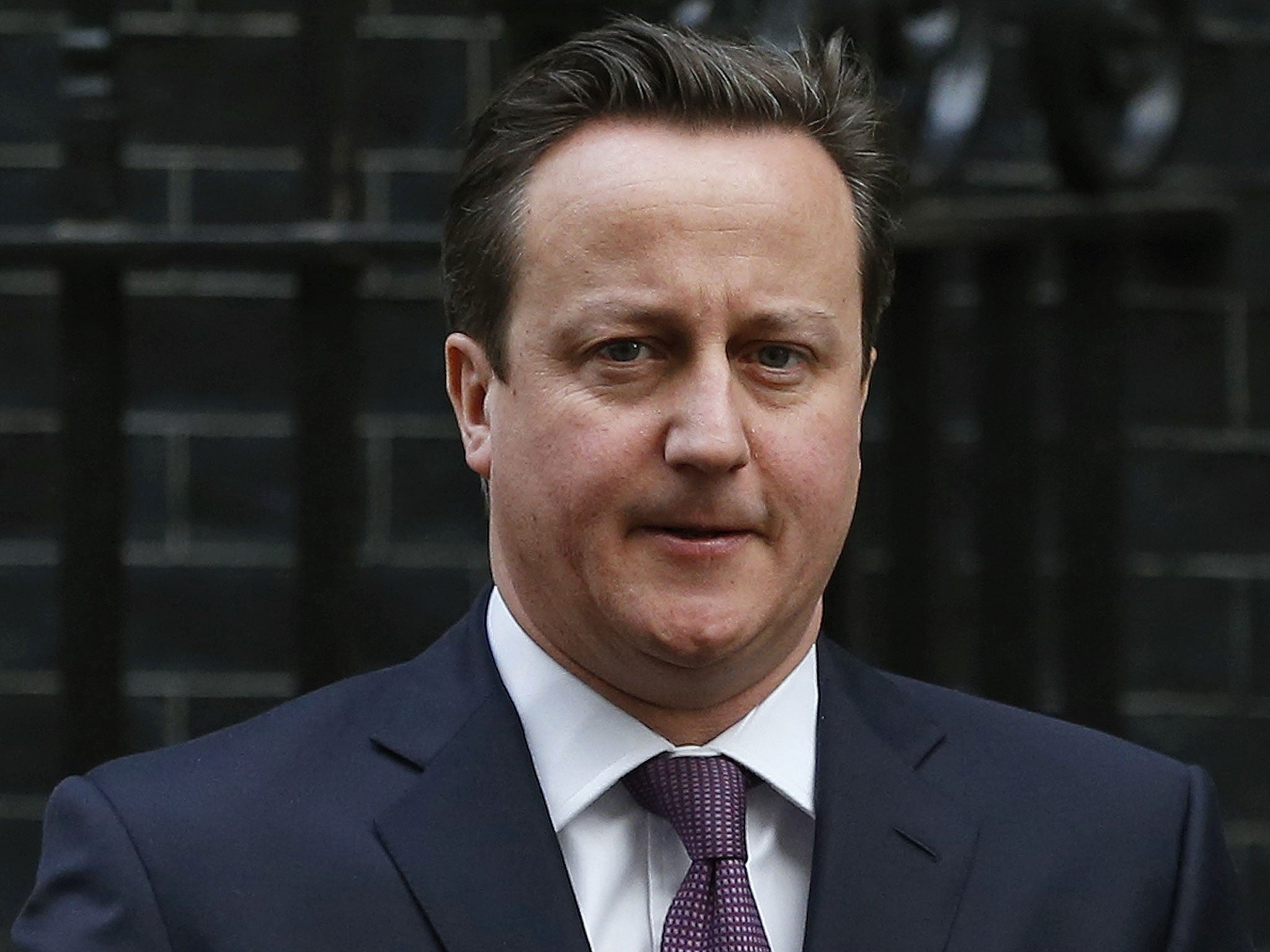David Cameron forced to delay key EU speech warning of Britain's exit

David Cameron is to warn that the British people will “drift towards the exit” of the European Union unless the EU is reformed.
The warning will be included in the speech on the UK's relationship with the EU, which the Prime Minister was due to make in the Netherlands today but postponed tonight because of the hostage crisis in Algeria.
In what is seen as the most important speech of his premiership, Mr Cameron will promise a referendum on the UK's relationship with the EU – but not until after the 2015 general election. That will fire the starting gun for an intense debate on whether Britain's future lies in the 27-nation bloc. Labour, the Liberal Democrats and some leading businessmen fear that promising a referendum risks putting the country on a slippery slope leading to EU withdrawal – and years of uncertainty for business.
Extracts released tonight – before today's event was called off – show that Mr Cameron will try to turn that criticism on its head. He will argue that an increasingly disenchanted British public could walk away from the EU unless its problems are tackled. "There is a gap between the EU and its citizens which has grown dramatically in recent years and which represents a lack of democratic accountability and consent that is – yes – felt particularly acutely in Britain," he will tell an audience of businessmen and diplomats.
"If we don't address these challenges, the danger is that Europe will fail and the British people will drift towards the exit." Mr Cameron will insist: "I do not want that to happen. I want the European Union to be a success and I want a relationship between Britain and the EU that keeps us in it." His tone will be more positive than Conservative Eurosceptics had hoped – a recognition that he will need to strike deals with other EU leaders rather than threaten to walk out of negotiations on a new EU treaty.
He will insist that he has "a positive vision for the future of the EU" in which Britain wants to play a "committed and active part". Mr Cameron will list the three challenges facing the EU as the eurozone crisis, being competitive in the global economy and public support. He will argue that difficult issues must be tackled head on, not shied away from. He will say: "There are always voices saying 'don't ask the difficult questions'. But it's essential for Europe – and for Britain – that we do."
He will add: "There is a growing frustration that the EU is seen as something that is done to people rather than acting on their behalf. And this is being intensified by the very solutions required to resolve the economic problems. People are increasingly frustrated that decisions taken further and further away from them mean their living standards are slashed through enforced austerity or their taxes are used to bail out governments on the other side of the Continent."
President Barack Obama has reiterated his support for Britain's membership of the EU in a phone call with Mr Cameron, the White House revealed.
During the conversation today, in which, the White House said "the Prime Minister set forth his thinking on UK-EU relations in light of his upcoming speech," Mr Obama "underscored our close alliance with the United Kingdom and said that the United States values a strong UK in a strong European Union."
Mr Cameron will tell other European leaders they have a duty to hear concerns and act on them. Warning of the risks of ducking the difficult questions, he will say: "More of the same will not secure a long-term future for the eurozone. More of the same will not see the EU keeping pace with the new powerhouse economies. More of the same will not bring the EU any closer to its citizens. More of the same will just produce more of the same."
Subscribe to Independent Premium to bookmark this article
Want to bookmark your favourite articles and stories to read or reference later? Start your Independent Premium subscription today.

Join our commenting forum
Join thought-provoking conversations, follow other Independent readers and see their replies